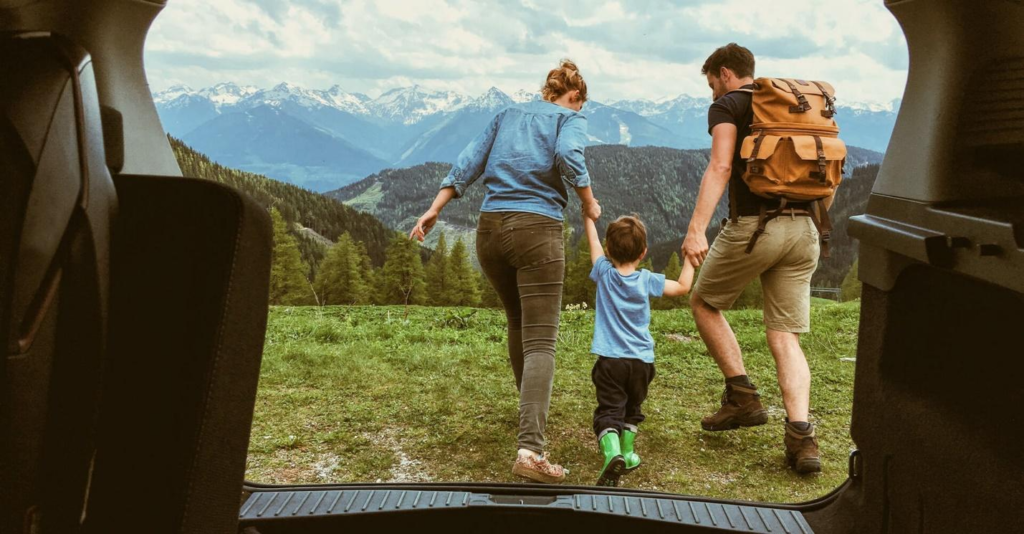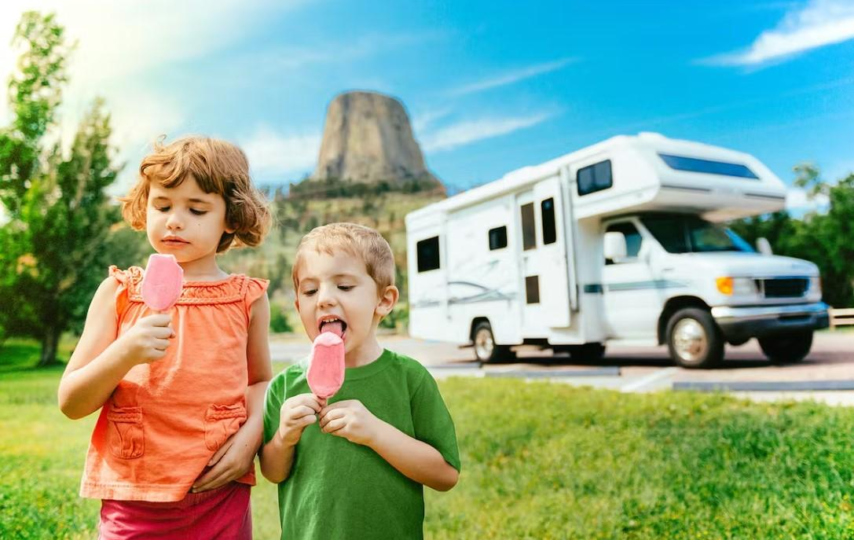Camping is one of the most enjoyable forms of recreation. It offers independence, the freedom to plan your own itinerary, and the opportunity to visit exactly the places you want to see. Traveling in a camper van allows you to bring a lot of things with you, which is important if you are traveling with children. You don’t have to worry about the size and weight of your bags, or the safety of their transportation (as is the case when traveling by plane).
If you are planning a camper van vacation with kids, or any vacation with kids for that matter, it is important to prepare properly. In this article, we will offer some suggestions on how to do just that.
How to prepare a child for an RV trip?
Despite common misconceptions, even the youngest of children can partake in RV travel and enjoy themselves thoroughly. It is not a challenge for either youngsters or parents, provided that we approach the matter with the proper mindset. It is worth reminding ourselves that camper tourism is centered around enjoyment, excitement, and slight deviations from daily routines. Irregular bathing schedules? Changing sleeping arrangements daily? Temporarily foregoing household appliances to simplify chores? Yes, indeed, that’s what an RV trip entails – and you can make it the most memorable vacation of your lifetime!
If you’re planning an RV trip and want expert advice and tips, be sure to check out camperlife.co, a comprehensive resource for all things related to RV travel and life on the road.
With a child in an RV: the most important rules
In order to ensure a pleasant and enjoyable RV trip with children, it is imperative to start with a positive and cheerful attitude. Take along a well-stocked first-aid kit, including essentials such as pain relievers, anti-inflammatory medication, bandages, hydrogen peroxide, insect repellent, and stomach remedies. If there is a young infant on board, don’t forget to bring something to alleviate teething pain – an occurrence that can arise suddenly, even during the middle of the night. It is worth noting that even if your child falls ill during your RV vacation, you need not abandon your plans altogether, just as you wouldn’t if you were staying in a hotel. The beauty of traveling in an RV is that you can still provide your child with the necessary care and attention they need, while also enjoying your vacation. Your child remains in a safe and hygienic environment and is not at risk of transmitting or contracting any germs from other individuals.
Moreover, an RV vacation eliminates the risk of being turned away from a resort or other lodging due to a child’s illness, as you are traveling independently and do not have to rely on shared facilities. Encourage your child to bring their favorite toy, and if they have trouble sleeping in a new environment, let them use their own bedding to create a comfortable and familiar sleeping space. For older children, it can be helpful to discuss the upcoming RV trip beforehand, highlighting the exciting adventures and beautiful sights they will encounter. This will help build anticipation and excitement, making the journey itself an adventure.
Safety first
When embarking on an RV adventure, safety should be top of mind. While the vehicle provides ample comfort during travel, it’s essential not to overlook the importance of car seats and seat belts. For infants, the customary 0-13 kg seat should be utilized, secured to a rear-facing seat or attached with ISOFIX. As for older children, it’s essential to wear a seat belt. Regular breaks should be taken during the journey, especially for young children, who shouldn’t spend prolonged periods in their seats. Snacks can be enjoyed while on the road, but feeding an infant – whether by bottle or breast – should be avoided. This poses a potential choking hazard and requires the child to be unbuckled from their seat during feeding, which could be dangerous for both the child and mother in the event of a possible collision.
Make a list beforehand, but sensibly
Prior to embarking on your RV adventure, it is imperative to gather all the essentials. Taking a moment to compile a list of crucial items is highly recommended. Nevertheless, as the masters of the camper vessel, any necessary item can be procured during the journey. It is imperative to prioritize items that are essential for the children and to take into account that the RV has restricted cargo capacity, despite its ample space.

What are some things that are sure to come in handy when traveling in a camper with a baby?
There exist various factors that can not only simplify, but also enhance your camper trip with a child. The following provisions are recommended:
• Bluetooth speakers – these allow for the harmonious listening of music or audiobooks. Fairy tales emanating throughout the camper will keep children engrossed for a significant duration;
• Power banks and accessories – music and readings will inevitably be playing on parents’ smartphones. Thus, a source of power for these devices will prove useful;
• A swiveling “pilot seat” – with this, one parent can maintain safety while keeping a constant watch over the little ones;
• Bed restraints for younger children – this is crucial for preventing falls while sleeping;
Additionally, when renting an RV for a vacation, it is advisable to ensure that the RV is furnished with functional blinds. This seemingly minor detail can significantly affect the quality of sleep during the journey. Shielded windows will guarantee that the morning sunrays do not penetrate too swiftly, allowing children to slumber longer – as will you.
A child in an RV – recognize his needs
Maintaining a regular daily routine can be challenging when camping in an RV, but it is important to keep a few key things in mind, especially when it comes to afternoon naps. Plan your trip so that your child can take a short rest and get some sleep. This will help them stay happy and content, which will benefit the entire traveling party.
When vacationing in an RV, it is important to take care of the well-being of your children. Make sure to cook them their favorite meals, let them play, and teach them to appreciate the beauty of the places you visit. This will help them develop a love of active relaxation and the simple things in life.








